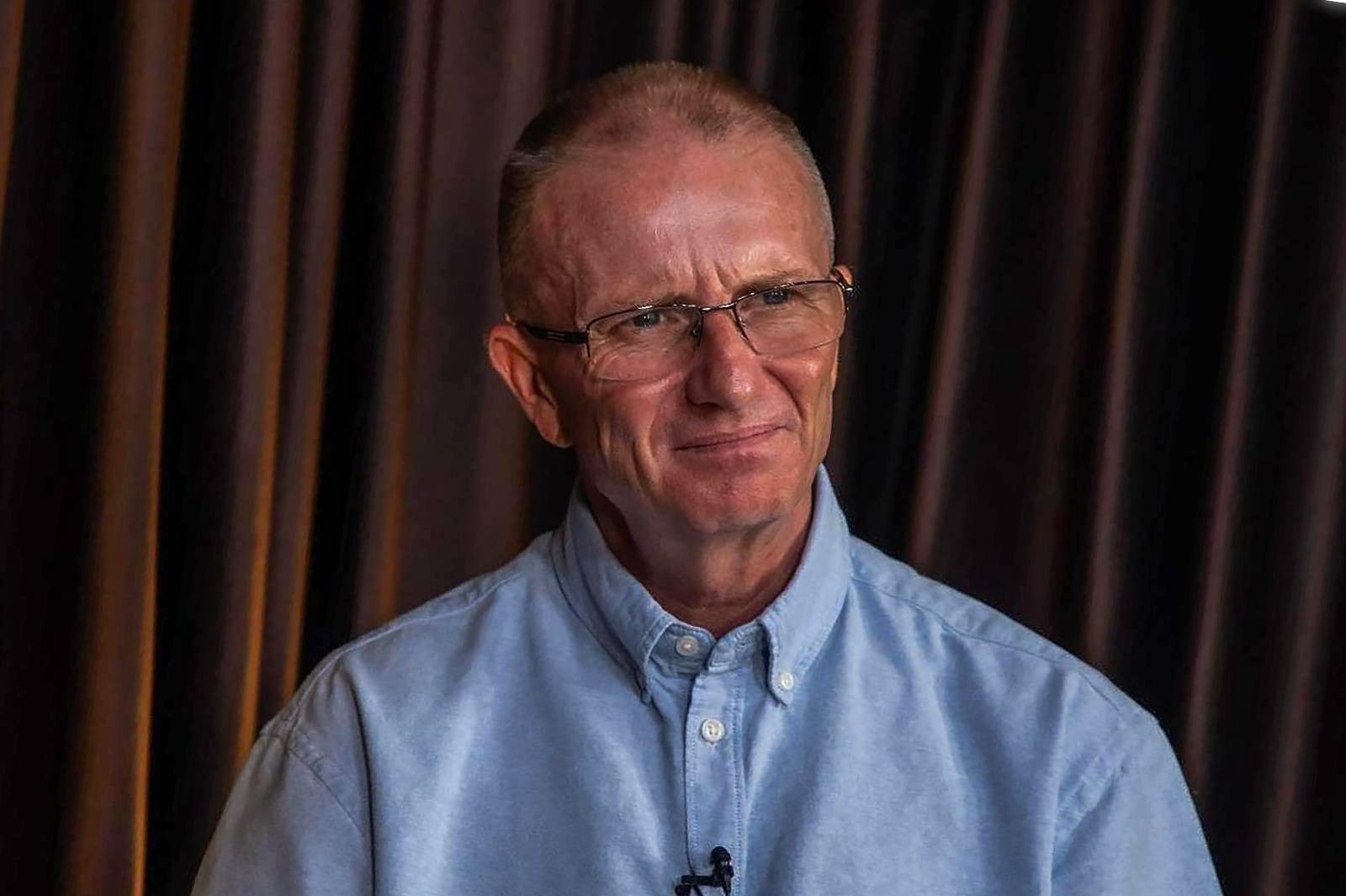A well-known researcher and author on Myanmar is urging the international community to provide direct military support to resistance forces that have been fighting the country’s military regime. Dr. Ashley South has worked on ethnic issues, federalism, education and humanitarian challenges in Myanmar for 30 years. He argues that direct military support—in particular, provision of ground-to air defenses—is the most effective way to hasten the end of the conflict, and protect civilian victims of the junta.
South told The Irrawaddy he thought the conflict in Myanmar is in the balance right now, referring to anti-junta forces’ recent victories in the country’s southeast, north and west: “They have the momentum, especially since the launch of operation 1027.”
Some of Myanmar’s established ethnic armed organizations (EAOs), often in partnership with anti-regime resistance forces known as People’s Defense Forces (PDFs), have been fighting against the junta following its military coup in 2021. Unlike the war in Ukraine, the armed struggle in Myanmar has received little international support. “This is despite the fact that—compared to many other conflicts around the world—it’s clear that anti-junta forces are the good guys, and the SAC junta is an illegitimate, illegal and evil entity,” said South, referring to the regime by its official name, the State Administration Council. So far, China has probably provided more direct support to EAOs than any other country.

Since last year, Ta’ang, Kokang and Kachin ethnic armed groups and their PDF allies have achieved a series of unprecedented victories, occupying a large swathe of previously regime-controlled territory in northern Myanmar. Meanwhile in the southeast, resistance forces now control most of Karenni (Kayah) State, close to the junta nerve center Naypyitaw, and the Karen National Union and allied PDFs in Karen State have overrun a string of regime bases, and liberated extensive territory in the Sittaung River valley of adjacent Bago Region. Most recently, in western Myanmar’s Rakhine State, another anti-regime EAO, the Arakan Army, has launched a large-scale offensive and may be poised to liberate the state capital of Sittwe. In the latest development, the New Mon State Party has announced that it will begin active operations against the junta in Mon areas of the southeast.
“The momentum is with the anti-junta forces. I think with a bit of luck, the right strategies and the right support, they can succeed,” he said.
South explained that the biggest constraint holding back the EAOs and PDFs is the junta’s terrible airstrikes and drone attacks, which not only impact fighting forces, but also civilian communities. “These extraordinary EAO victories have come at the cost of great humanitarian suffering. As well as supporting the legitimate armed struggle of anti-junta forces, there is an urgent need to protect civilian communities from airstrikes, and other massacres.”
In response to the offensives, the regime has repeatedly used airstrikes, not only against resistance forces but also on civilians in targeted areas, causing widespread destruction and killing large numbers of civilians, including many children. According to recent research by the independent Nyan Lynn Thit Analytica group, since the 2021 coup the junta had launched 1,652 aerial attacks as of December 2023, killing at least 936 civilians.
Under these circumstances, South said anti-junta forces urgently require anti-drone technology and proper air defense systems in order to protect civilian communities. He added that now is the time for a fairly modest package of direct military support to PDFs and—particularly—ethnic armed groups, because EAOS generally have well-established chains of command, making them more reliable militarily (with less risk of proliferation).
“The right kind of support could inhibit the Myanmar Army’s ability to use airstrikes against anti-junta forces and civilians,” South said, while recognizing that authorizing this kind of support would require high-level political decision-making. While some people might think this is unrealistic, he argued for the importance of placing military aid to anti-junta forces on the political advocacy agenda. “But it needs to happen now. It’s no good having debates for the next couple of years.”

















